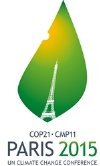Published on Wed, 2015-12-16 10:35
The Paris deal recognises the reality of the climate threat, but only takes us part of the way. Climate change is already destroying lives and livelihoods with more than 2.6 million people displaced by extreme weather events and changing seasons. This will only get worse. The Paris decisions acknowledge the challenges and move global action forward, but while the Summit conclusions refer to the target of a 1.5-degree limit, the capacity to leverage ambition on the scale required to stabilise the planet is still a question for the future. |
Published on Fri, 2015-12-11 19:03
Last summer, the international civil society network Fair Finance Guide International (FFG) launched its report on Transparency and Accountability in the Financial Sector. The report examined key aspects relating to transparency and accountability, and to reporting about tax related issues, as they apply to 47 banks in the seven countries where FFG is active. The report assessed and scored the 47 banks on their transparency and accountability by looking at four key aspects: publication of policies and risk management; disclosure of investments; reporting on engagement with companies and voting behaviour; and stakeholder dialogue. The report also scored those banks on their transparency on tax-related issues, including the extent to which they provide detailed, country-by-country information on key indicators on transparency and tax. |
Published on Fri, 2015-12-11 19:00
“The final Paris Agreement is a nail in the coffin for justice for LDCs”, said Azeb Girmai, climate lead for LDC Watch, the platform of civil society organisations in Least Developed Countries (LDCs). “We have gradually seen the text change from the long-standing ‘polluter pays principle’, where developed countries are obliged to finance adaptation and mitigation to help developing countries deal with climate chaos to one where the wealthiest countries simply refused to commit any climate finance. In the final agreement, “new and additional” climate finance committed in the 1992 Convention has now been dropped out”. |
Published on Wed, 2015-12-09 18:39
Philanthropic foundations such as the Bill & Melinda Gates Foundation and the United Nations Foundation have seconded their staffers to top management positions at the World Health Organization. A UN Foundation staffer was placed in the office of the Director-General Dr. Margaret Chan as senior strategist (D1 level) for a 24-month contract this year. One Gates Foundation staffer is seconded at P5 level as manager of program operations and cluster management at the Polio and Emergencies Cluster. |
Published on Fri, 2015-12-04 09:13
Next year marks the beginning of a second major period of expenditure contraction globally. Not only in Europe, but mostly in developing countries, according to IMF fiscal projections. Details and results or our review are in a policy brief “The Forthcoming Adjustment Shock” and a full working paper “The Decade of Adjustment: A Review of Austerity Trends 2010-2020 in 187 Countries.” |
SUSCRIBE TO OUR NEWSLETTER






